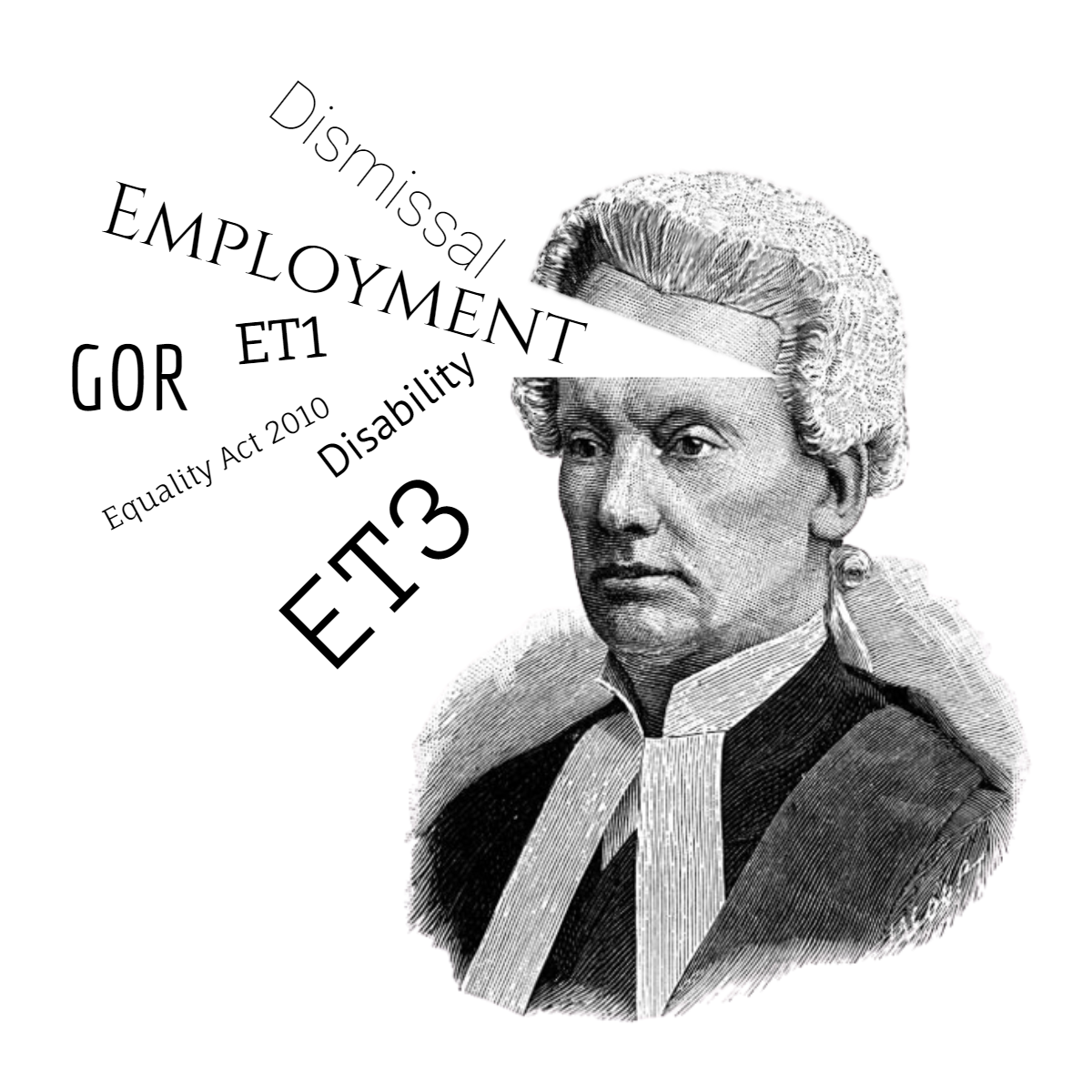Compensatory Award
for Unfair Dismissal
Compensatory Award for Unfair Dismissal
The compensatory award may be made in addition to the basic award. Section 123 ERA 1996 directs the Tribunal to make a compensatory award that is ‘just and equitable’ in the circumstances. There is a maximum limit on the compensatory award. The limit is index-linked and is set in February each year. The maximum compensatory award for unfair dismissal will rise from £93,878 to £105,707. These price hikes are a result of the notable 12.6% rise in the retail price index between September 2021 and September 2022.
The Tribunal must have regard to loss sustained by the employee in consequence of the dismissal, insofar as that loss is attributable to the action taken by the employer.
In some cases the maximum figure does not apply i.e. compensation is unlimited. These include where the employee is automatically unfairly dismissed for reasons related to Health and Safety activities and public interest disclosure cases. The compensatory award is designed to compensate the employee for loss suffered as a result of the dismissal.
The Norton Tool Principles
The case of Norton Tool Co Ltd v Tewson [1972] ICR 501 established it is the duty of a Tribunal when making an award of compensation to state their reasons for the award and to show how the award was made up, albeit that the award need not be precisely and arithmetically related to the proved loss.
Statute and case law suggest the following heads of claim:
1. Immediate loss of wages
This covers the period of loss from the EDT to the date of the Tribunal hearing (or, where the employee has found alternative work, the date such work has commenced). The wages in question are the net wages (contrast with the basic award) and include overtime where relevant.
2. Future loss of wages
The period in question for this head of loss begins immediately after the Tribunal hearing. The Tribunal adopts a broad brush approach to this issue, taking into account when the employee is likely to obtain a job and what the wage is likely to be. For this it will take into consideration the local job market, the employee’s personal characteristics (e.g. age, skills) and any anticipated increases in wages of the old job.
3. Loss of fringe benefits
Contractual benefits come under this head and it covers both the immediate and future loss periods. Benefits include the loss of holiday pay, contractual bonuses and commission, and the private use of a company car (note there will be no loss if the car was used exclusively for company business).
4. Loss of pension rights
Pension losses are notoriously difficult to quantify. It is for the claimant to prove the loss and its extent and the value will depend largely on the amount of any employer contributions and the age and length of service of the claimant. Losses are usually assessed on the basis of the contributions which would have been made by the employer had the employee not been unfairly dismissed. If the employer did not make any contributions to the employee's pension scheme then it is unlikely that the employee will be able to recover losses under this head of damage.
5. Loss of statutory protection
As a result of the unfair dismissal, the employee will have to work for two year to once again be afforded protection from being unfairly dismissed. They have also lost their right to long notice based on service stemming from s.86 ERA 1996. This is compensated by a nominal award, historically £250 but now more often pleaded as £350 or even £450.
6. Expenses of looking for new work
This includes travel to interviews and buying publications which carry relevant job adverts. It can also cover the cost of moving house to take up a new job.
Adjustments to the compensatory award
Once an amount has been provisionally set using the Norton Tool principles, the Tribunal has the power to make adjustments to it in a set order.
1. Payments already received
The Tribunal will deduct an amount equal to non-contractual payments already made to the employee by the employer who dismissed them (e.g. ex gratia payments, golden handshakes).
2. Sums earned since dismissal
As the employee has a duty to mitigate his losses, if he has done so, any sums earned will be deducted. If he has failed to mitigate his losses, the Tribunal can deduct sums he should have earned if reasonable mitigating steps had been taken.
3. A percentage representing the chance that dismissal would have occurred anyway – a Polkey reduction
It is possible that even if the employer had followed the correct procedure the dismissal may still have occurred. This is often referred to as a technical finding of unfair dismissal, which can be reflected in a reduction to the amount of compensation awarded to the employee. This is known as a ‘Polkey reduction’.
The case of Polkey v A.E. Dayton Services Ltd [1988] AC 334 is an important House of Lords decision. The case itself firmly establishes the absolute right of an employee, save in exceptional circumstances, to be consulted before being dismissed notwithstanding that consultation would make no difference to the decision to dismiss him.
By extension, the rule in Polkey means that compensation for unfair dismissal should be reduced if the dismissal was unfair on procedural grounds (i.e. because the employer adopted faulty dismissal procedures) but the Tribunal is satisfied that the employee would have been dismissed anyway even if proper procedures had been followed.
A Polkey reduction reflects the possibility that had the employer followed a fair procedure there was a chance that the employer would have dismissed in any event. The onus is on the employer to show that the dismissal would have occurred in any event.
4. Adjustments required by the ACAS Code
The ACAS Code (the "Code") allows for Tribunals to be able to increase awards by up to 25% where there is an unreasonable failure by the employer to comply with any provision of the Code. Conversely, if the Tribunal concludes that an employee has failed to follow the guidance set out in the Code, it can reduce any award made by up to 25%.
5. Increase due to failure to provide written particulars of employment
Under s.38 EA 2002 this is between two and four weeks’ pay at the statutory amount of £380 per week.
6. Deduct a percentage for contributory fault
Under s.123(6) ERA the Tribunal has the power to make a reduction where the employee is thought to be at fault on a ‘just and equitable’ basis.
Employment Coach
Employment coaching service has been developed to provide individuals the ability to overcome their own workplace conflict or employment concerns, when they do not have want to pay a retainer to hire a solicitor. I provide an affordable alternative to expensive solicitor’s fees, and I am able to walk you through the steps of any procedure as well as provide the paperwork that you will want for your workplace dispute. The fees of solicitors are high and these legal costs you incur are not recoverable because costs are rarely awarded in employment tribunal. Getting access to good advice does not have to be expensive it should be straightforward and honest and will resolve your problem, normally with compensatory settlement.
Employment Adviser
I have 20 years of experience teaching law. Additionally, I have a lot of expertise in employment law and have helped individuals as well as companies. There have been a lot of profitable results, but more than that, I have had hundreds of cases that settled because the employer was unable to win. Why not have someone teach you employment law if you are experiencing issues at work? When you are facing problems at work, I can provide you helpful suggestions and guide you to a positive result. Employment matters where I advise, seldom go to final hearing at the employment tribunal, because the case has been argued correctly from the outset. Here are some examples where I can help you:
Help offered
I am facing discrimination at work
I am facing maternity discrimination
I am facing race discrimination
I am facing disability discrimination
I want to bring a tribunal claim
How do I prepare for a Preliminary Hearing?
How to prepare a list of issues
How to prepare a schedule of loss
What is asserting a statutory right?
Claim constructive dismissal
Is my Redundancy fair


